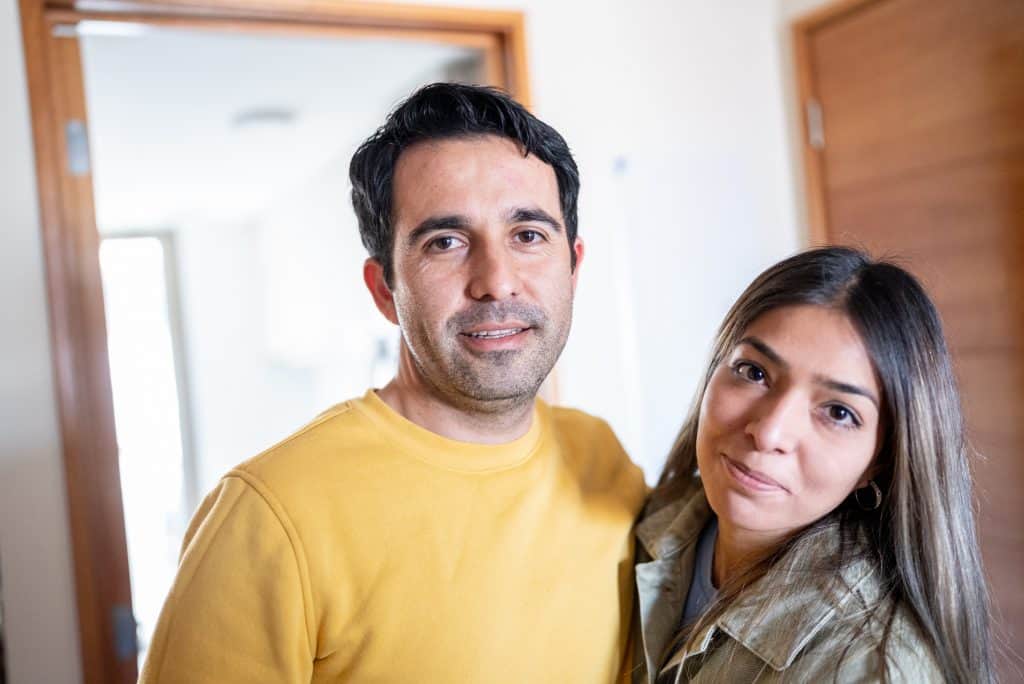The first 8 years of Troy and Melissa’s marriage were horrible because of Troy’s sexual addiction. As God healed them—Troy from his addiction and Melissa from betrayal trauma—they developed a passion for helping other couples. From this, their ministry, HopeQuest, was born. Troy and Melissa recently sat down with our podcast team to discuss their story and the difference between forgiveness and trust.
Melissa Haas says there’s an important difference between forgiveness and trust, and couples in recovery are often confused about them. Here are some important takeaways from this conversation.
Forgiveness Requires Disclosure
You can’t forgive what you don’t know. So, before you can even think about forgiveness or trust, it’s vital to be fully honest and transparent. If a spouse has used pornography, this means a full disclosure of pornography use. It could include other sexual behaviors as well.
Troy says, “Disclosures are necessary so we have level ground.”
What Forgiveness Is
Forgiveness is a beautiful and powerful thing, and it’s something that God commands us to do. Melissa explains:
“Forgiveness is something God wants for all of us. Do I trust that Jesus has covered this sin with his blood? Forgiveness is about trusting that Jesus covers what the spouse has done, and I don’t have to make him pay.”
In other words, we can forgive because we trust God to make things—not the person who hurt us. Forgiveness means that we give up our right to retaliation. But people often misunderstand what this means practically.
What Forgiveness Is Not
Melissa explains:
“If I settle forgiveness in my heart: I still feel pain. Sometimes couples get confused—I thought I forgave him, but I still feel pain? I still feel angry?”
Forgiveness doesn’t make the hurt and pain go away. Many couples, especially in the early stages of recovery, are confused because they still feel hurt and angry even after forgiving their spouse. Troy and Melissa emphasize that forgiveness alone can’t repair the damage done to a relationship by pornography.
“That’s not a forgiveness issue, that’s a healing issue.”
Why You Need Trust (And How to Get It)
Forgiveness doesn’t fix the problem. If the relationship is going to be restored, you need trust. And trust can’t happen quickly. Trust is only rebuilt slowly, over time.
Melissa explains:
“For emotional safety, I have to see that you are for me. When we have an attachment injury, we have a huge disruption of trust. Trust-building is about having more cues of safety than cues of danger.”
She offers these important pointers for rebuilding trust:
- Rebuilding trust is about actions, not words. Trust is rebuilt by small actions, a little bit, day by day.
- Rebuilding trust means increasing cues of safety. Connection creates a feeling of safety, so work on developing emotionally connecting experiences.
- Rebuilding trust depends on the person who has done the offending—they need to take initiative. Someone who has been hurt can take the initiative to forgive the offender, but that won’t repair the broken trust in the relationship.








I already trusted my husband, based on the safety and emotional connection that we had built together. I wouldn’t have married him, if I didn’t believe I could trust him, with my whole heart. But I was wrong to trust him. He was skilled, at making me feel safe and emotionally connected. But I was foolish, I naively thought that because I felt safe and emotionally connected, that meant he was trustworthy. It really just means he has the skill to get me to feel that way. It doesn’t actually mean he is trustworthy. I think men who who were previously untrustworthy, but who later become permanently trustworthy, are rarer than hen’s teeth. If a woman finds she has been fooled by an untrustworthy one, she is wiser to cut her losses, forgive him, and get far away from him.